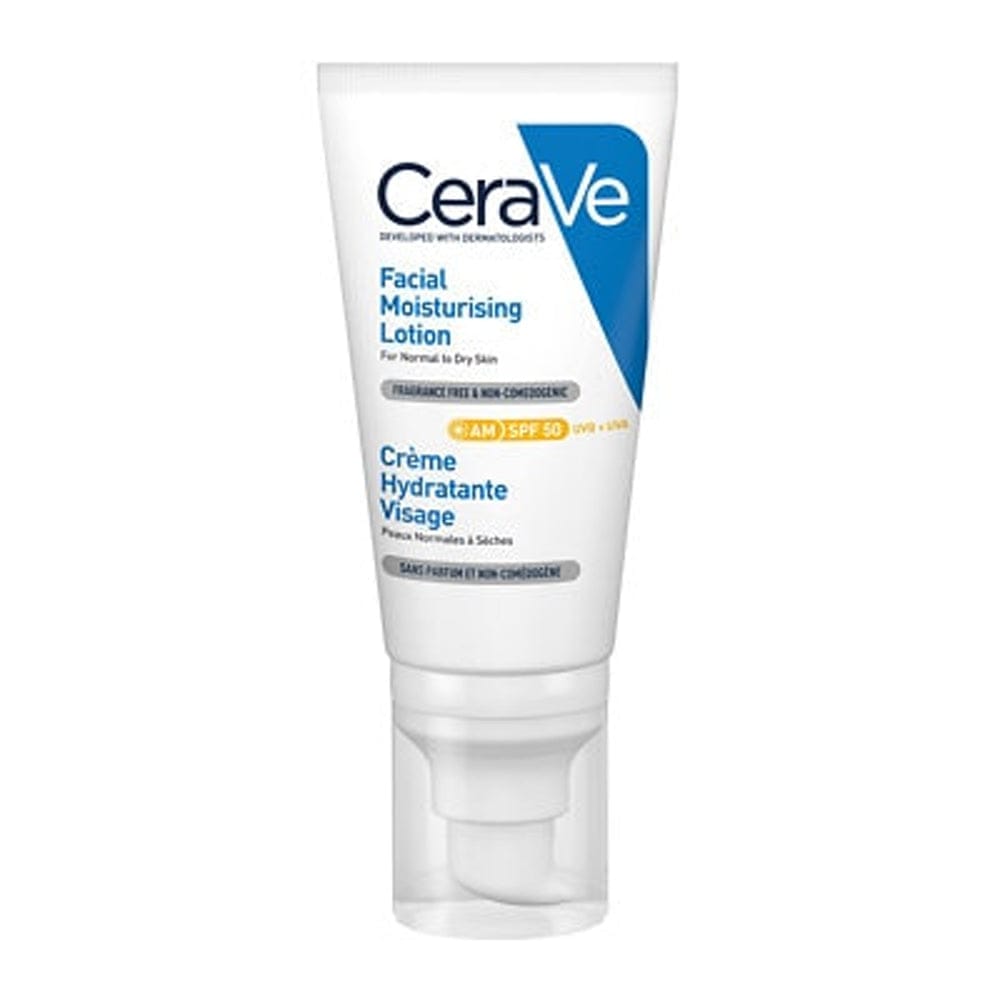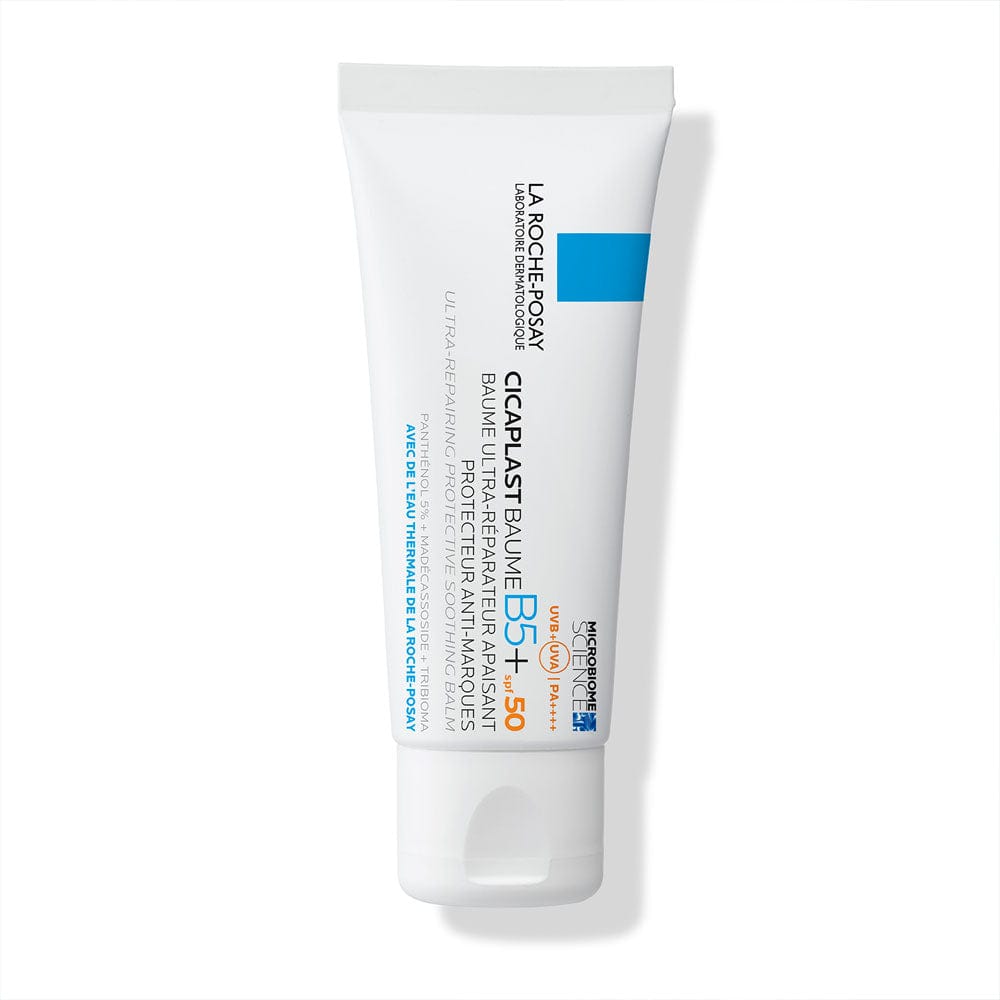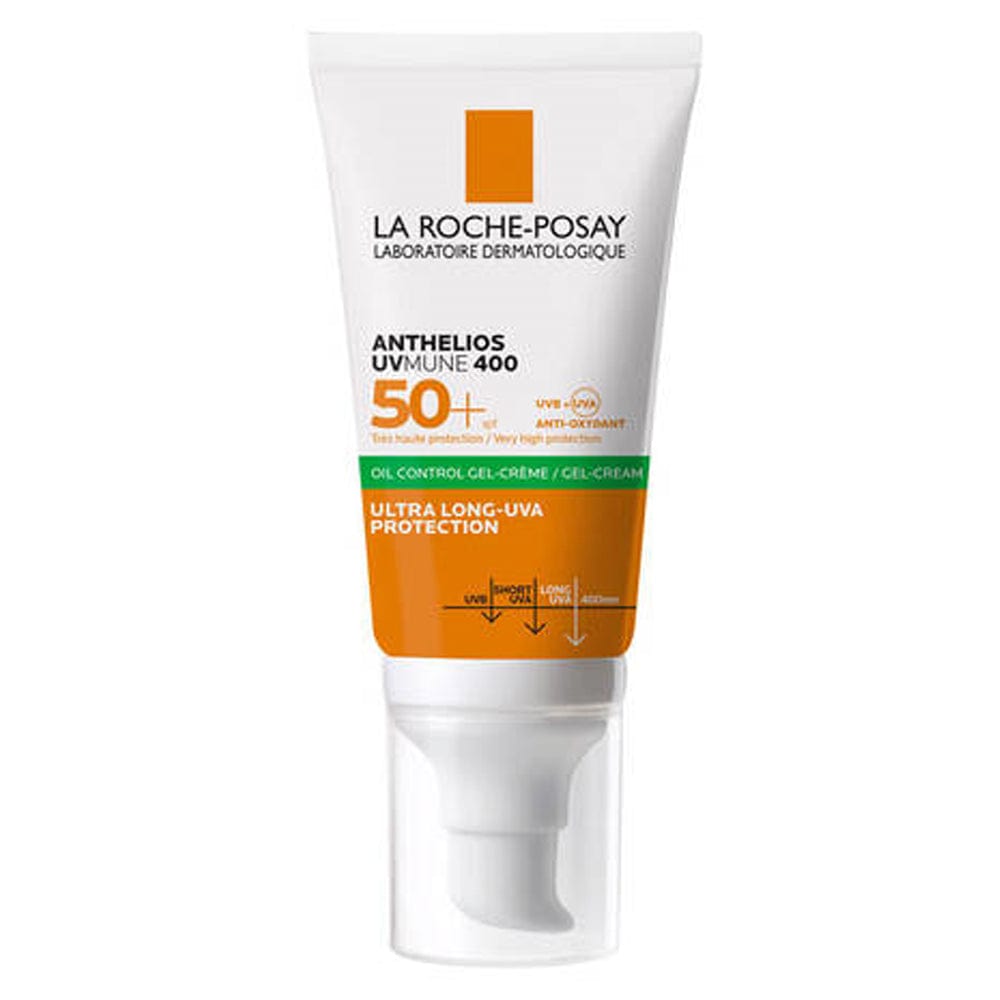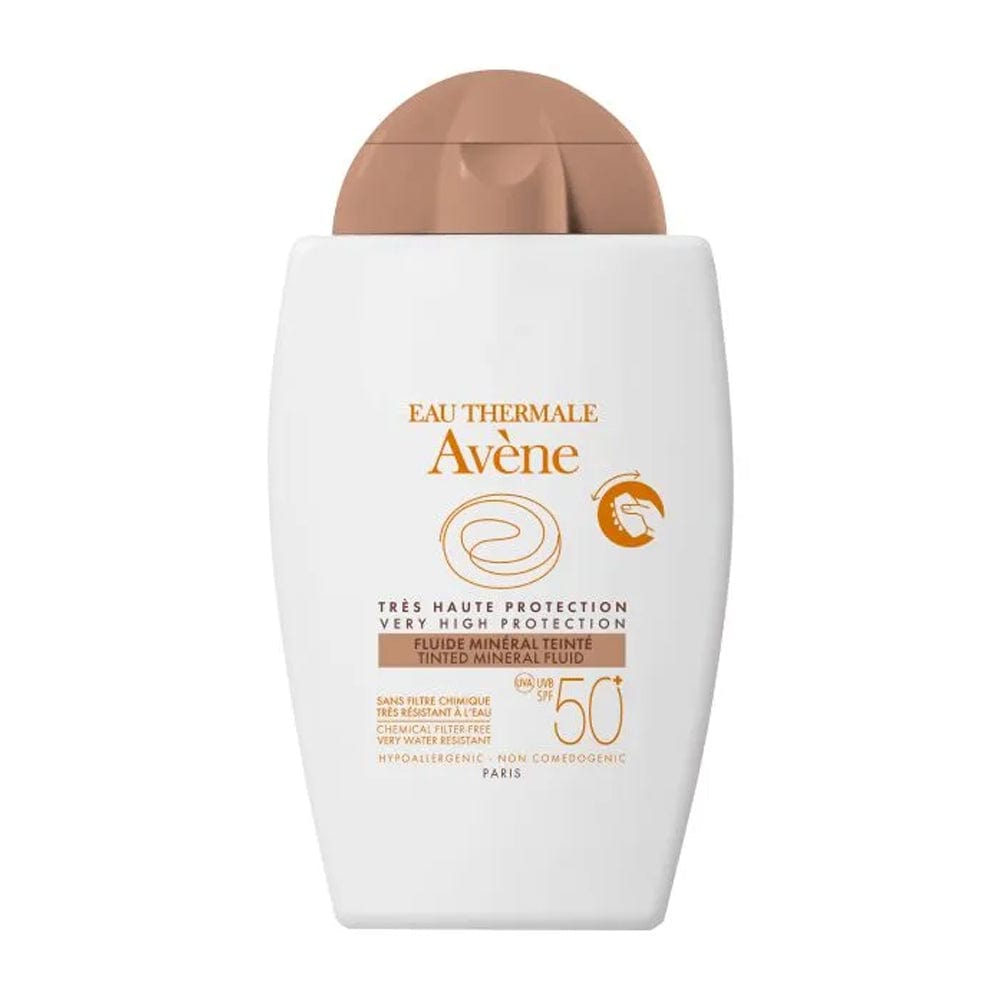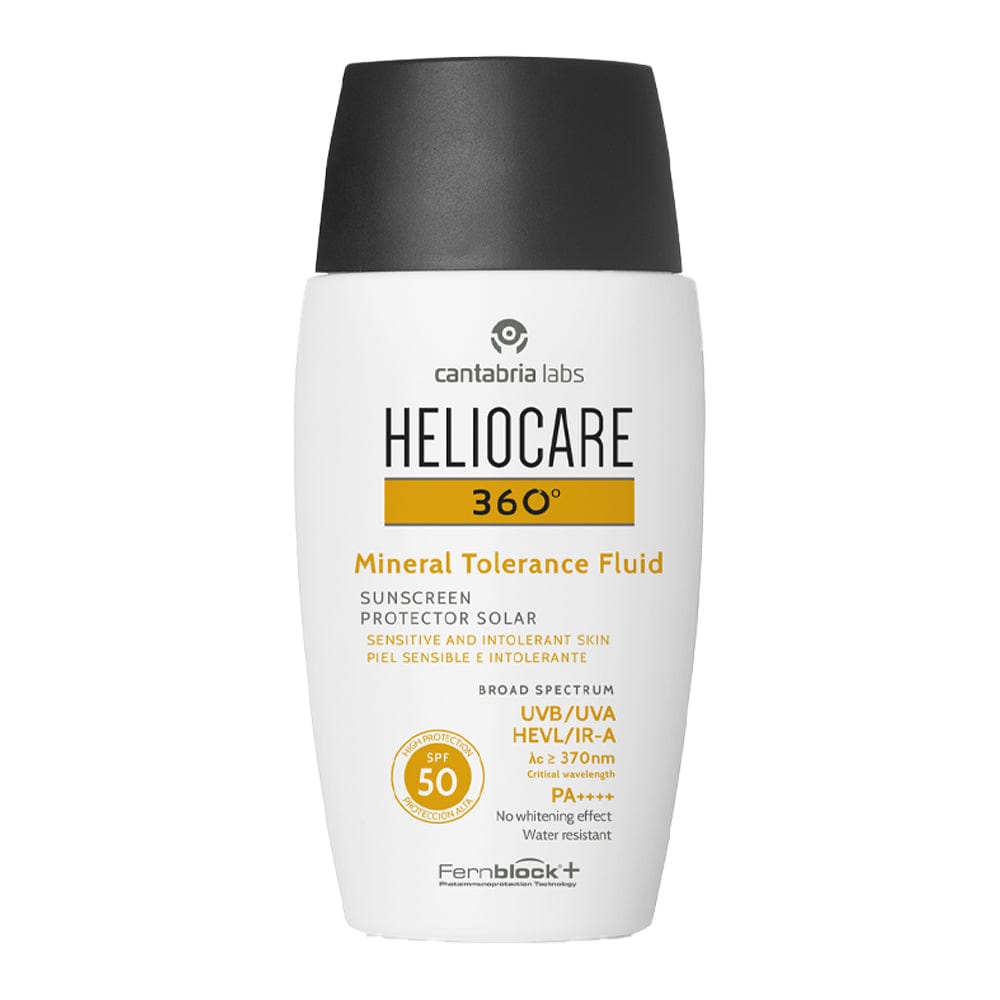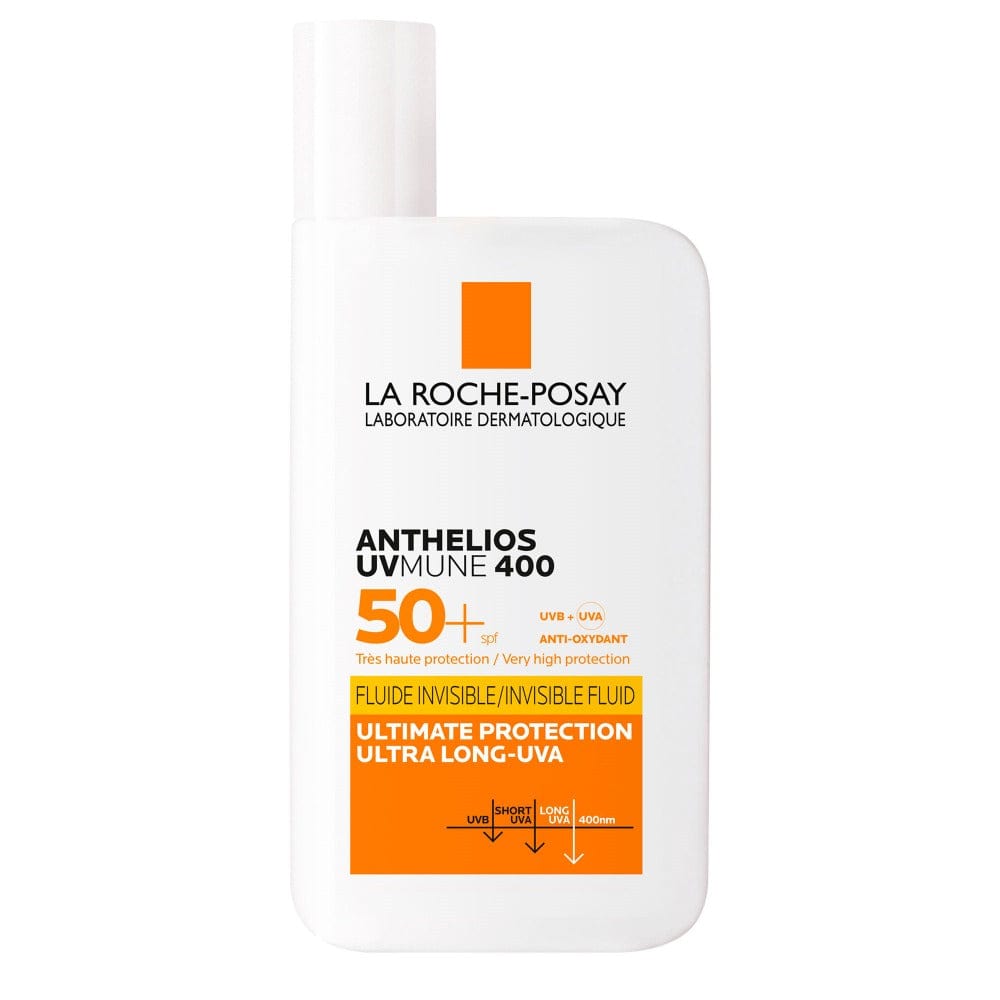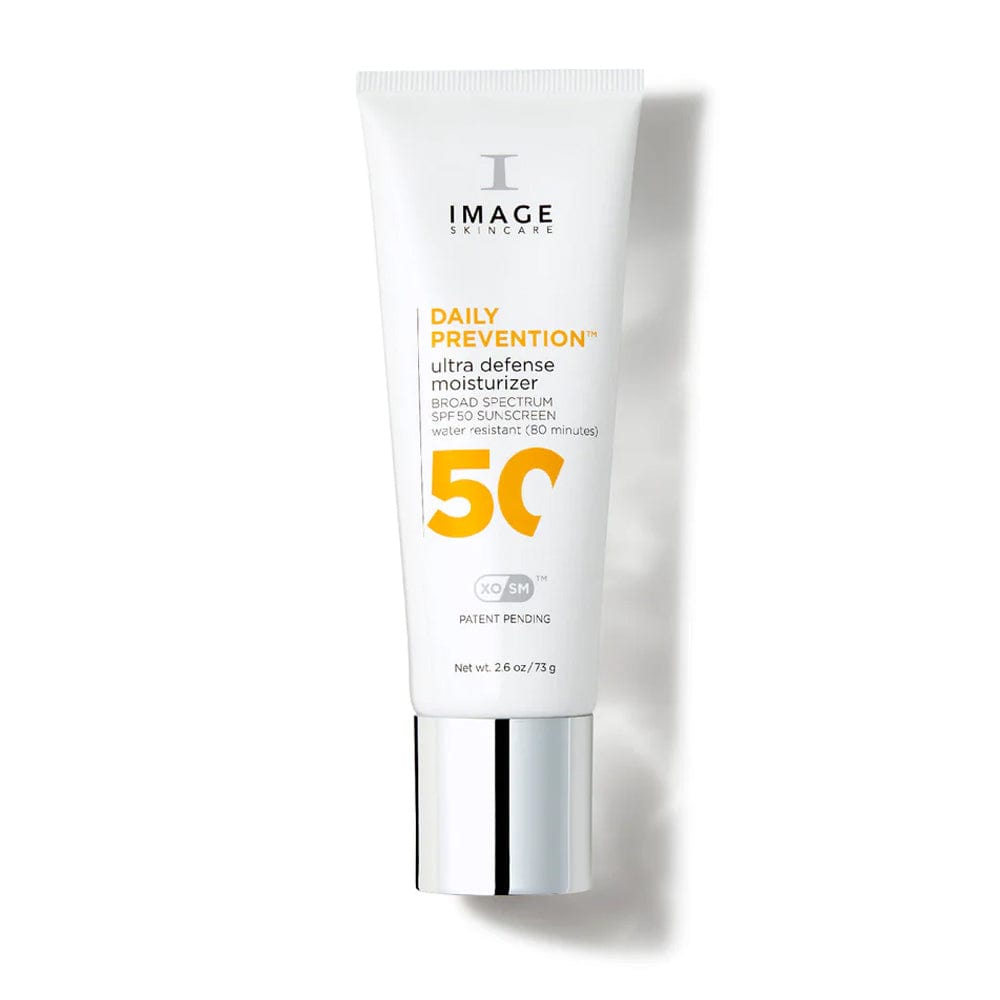When it comes to protecting your skin, sunscreen isn’t just for the summer - it’s a daily essential. From shielding against premature ageing to reducing the risk of skin cancer , the right SPF is your skin’s first line of defence against the sun’s harmful UV rays. There are many types on the market - SPF 50, mineral, broad-spectrum, and even lip-specific formulas. This article recommends the right products for you depending on your needs.
Click on one of the sections below to learn more:
- Why a daily SPF matters
- SPF50: do you need maximum protection every day?
- Mineral sunscreen options for sensitive skin
- Broad-spectrum protection: covering Ultra long UVA, UVA, UVB and blue light
- Lip Care: high protection SPF for delicate skin
Learn the importance of finding an SPF that you can wear everyday
Discover the best factor 50 sunscreens that have a barely-there finish
Find reactive skin-safe products that don’t leave a white cast
Protect your skin from a wide range of ageing sunlight rays – find the best option
Protect your delicate skin with targeted formulas that you can reapply throughout the day
Why a Daily SPF Matters
Even on cloudy days, up to 80% of UV rays can still penetrate your skin, accelerating collagen loss, pigmentation, and the formation of fine lines. That’s why dermatologists recommend applying daily sunscreen, particularly a factor 50, to the face, neck, and lips.
SPF (sun protection factor) measures how much UVB protection you get, while a broad-spectrum label means it also covers UVA (ageing rays) and, in some cases, blue light from screens. For optimal defence, experts suggest SPF 50 broad-spectrum protection.
SPF 50: Do you Need Maximum Protection Every Day?
SPF 50 blocks around 98% of UVB rays, compared to SPF 30’s 97% - but that extra 1% translates to a 33% reduction in UV exposure. This can make a meaningful difference over years of daily wear, especially for fair, sensitive, or damage-prone skin.
Benefits of SPF 50
- Reduces the risk of burning and long-term DNA damage
- Offers a margin of safety if you under-apply or skip a top-up
- Essential for high-altitude, beach, or snowy environments
- Recommended for lips, facial skin, children, and anyone with a history of skin cancer
Top SPF 50 Picks:
- CeraVe AM Facial Moisturising Lotion SPF50: hydrating, barrier-supporting hybrid formula with ceramides and niacinamide.
- La Roche-Posay Anthelios Age Correct SPF50+: anti-ageing cream with niacinamide, phe-resorcinol, and antioxidants.
- La Roche-Posay Cicaplast Baume B5+ SPF50: soothing balm for sensitive, post-procedure, or irritated skin.
- Rosalique 3-in-1 Anti-Redness SPF50: tinted, redness-correcting sunscreen with hydrating and soothing actives.
- La Roche-Posay Anthelios Invisible Anti-Shine Mist SPF50+: matte spray for oily or acne-prone skin, great for reapplication.
Mineral Sunscreen Options for Sensitive Skin
Mineral (physical) sunscreens use zinc oxide and/or titanium dioxide to reflect UV rays. They’re ideal for sensitive, acne-prone, or redness-prone skin, and are effective immediately after application.
Why choose mineral SPF?
- Non-comedogenic and less likely to cause irritation
- Soothing and healing (zinc oxide)
- Reef-safe options available
- No wait time before sun exposure
Top Mineral Sunscreen Picks:
- Skingredients Skin Shield SPF50: Dewy, tinted zinc oxide primer with niacinamide and allantoin.
- Avène Mineral Fluid SPF50+: Lightweight, tinted or untinted, with soothing thermal spring water.
- Image Daily Prevention Mineral Tinted Moisturiser SPF30: Hydrating, antioxidant-rich, universal tint.
- Heliocare Mineral Tolerance Fluid SPF50: Light, non-greasy, antioxidant-boosted, tinted formula.
Avoiding a white cast with mineral SPF:
Because mineral filters act like a mirror, reflecting UV rays, they often leave a white cast. However, there are some ways to avoid it. Apply in thin layers, pressing rather than rubbing, and use a micronised mineral SPF formula. Use a tinted mineral SPF as these offer colour correction while minimising the appearance of a white cast.
Broad-Spectrum Protection: Covering Ultra-Long UVA, UVA, UVB & Blue Light
Broad-spectrum sunscreens protect against UVA (ageing rays), UVB (burning rays), and, in some advanced formulas, blue light from devices. This makes them especially important for those concerned about pigmentation and digital-age skin damage.
Hero Broad-Spectrum Filters (chemical and mineral):
- Zinc Oxide (mineral)
- Bis-Ethylhexyloxyphenol Methoxyphenyl Triazine
- Butyl Methoxydibenzoylmethane
- Drometrizole Trisiloxane
Recommended Broad-Spectrum Picks:
- La Roche-Posay Anthelios UVMune 400 Invisible Fluid: Patented filter tech for high UVA coverage, including ultra-long UVA.
- Murad City Skin Age Defense SPF50: Blocks UVA, UVB, HEV light, and pollution; with vitamin C and oat extract.
- Image Daily Prevention Ultra Defence Moisturiser SPF50: Antioxidant-rich, hydrating blend of mineral and chemical filters.
Lip Care: High-Protection SPF for Delicate Skin
Your lips are highly sensitive, with less melanin and thinner skin than the rest of your face, making them more vulnerable to UV damage, sunburn, and even skin cancer (particularly on the lower lip). They’re also prone to dryness, cracking, and cold sore flare-ups, especially after high sun exposure.
A dedicated SPF lip balm protects against these risks while keeping lips hydrated, soft, and smooth.
Key Benefits of SPF Lip Balms:
- Hydration:Ingredients like shea butter, coconut oil, hyaluronic acid, and vitamin E help lock in moisture.
- Convenience:Compact and easy to reapply after eating, drinking, or outdoor activity.
- High Protection: Broad-spectrum SPF 30–50+ shields against UVA and UVB rays year-round.
- Invisible Finish: Clear or lightly tinted formulas avoid white cast and greasy feel.
Top SPF Lip Picks:
- Parasol SPF50+ Lip Balm Stick: Clear, high-protection, hydrating balm in a portable twist-up stick.
- Caudalie Vinosun High Protection Stick SPF50+: Nourishing with grape-seed oil, invisible finish, reef-friendly.
How to Choose Your Perfect SPF
- Skin Type Matters
- Dry skin: Hydrating SPFs with glycerin, hyaluronic acid, or ceramides (e.g., CeraVe AM SPF50, Image Ultra Defence SPF50).
- Oily/Acne-Prone: Lightweight, mattifying formulas (e.g., Anthelios Mist SPF50+, Skingredients Skin Shield hydrating and priming formula).
- Sensitive: Fragrance-free mineral sunscreens (e.g., Avène Mineral Fluid SPF50+, La Roche-Posay Cicaplast Baume SPF50).
- Daily Use vs. Outdoor Activity
- For everyday city use: A broad-spectrum, antioxidant-rich SPF that works under makeup. A good option would be the Skingredients Skin Sheild SPF50
- For outdoor sports or beach days: Water-resistant SPF 50+ with sweat-proof performance. A good option would be the La Roche Posay Anthelios UVMune 400 Sun Cream
- Tinted or Untinted
- Tinted SPFs can even skin tone and replace light makeup, while untinted ones can be more versatile, especially when using chemical filters.

